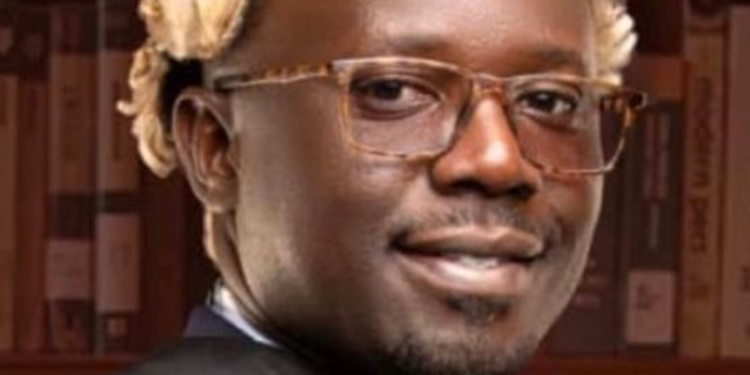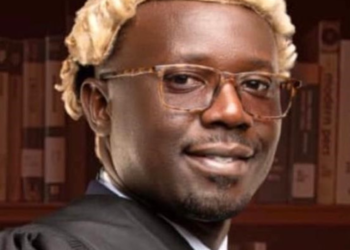Hijacking the people’s will: The illegitimacy of the 2025 constitutional amendment process
By Elvis Ng’andwe
“The people fought for a constitution that protects them, not one rewritten to protect the powerful”
IN JUNE 2025, the Constitutional Court of Zambia handed down what many hailed as a landmark decision, one that appeared to finally settle the long-running dispute over who owns the Constitution. In Munir Zulu and Celestine Mukandila v Attorney General (2025/CCZ/009), the Court reminded the nation of a simple but powerful truth: the Constitution belongs to the people, not to those who govern them.
Yet, barely three months later, the government seems determined to sidestep both the spirit and the letter of that ruling. The recent announcement by President Hakainde Hichilema appointing a “Technical Committee” to consult the people and draft constitutional amendments has reopened wounds the Court sought to heal. Behind the polished language of “dialogue” and “consultation” lies a familiar pattern; a top-down, executive-driven process that once again treats citizens as spectators in their own democracy.
The judgment that put the people first: In the Munir Zulu case, the petitioners challenged the government’s 2025 plan to amend the Constitution, arguing that it had been initiated without meaningful public consultation. The Constitutional Court agreed. Delivering the majority judgment, Court President Justice M.M. Munalula made a sweeping and transformative declaration: “The Constitution amendment process cannot be initiated without the participation of the people of Zambia through wide consultations… The power to amend the Constitution lies with the people.”
In essence, the Court drew a bright line between framing and passing constitutional amendments. Parliament may pass laws, the Court reasoned, but it cannot frame what the Constitution should contain, that power rests with the citizens. To do otherwise would reduce the supreme law of the land to a mere political project of the party in power.
The Court ordered government to ensure that any future constitutional reform be people-driven, led by an independent body of experts, and preceded by broad-based consultations, similar to the Technical Committee on Drafting the Zambian Constitution (TCDZC) process that birthed the 2016 Constitution. Importantly, it also held that the Constitutional Court could intervene even before a Bill reaches Parliament, to prevent “mutilation” of the Constitution.
This ruling was a bold assertion of constitutional supremacy over political convenience. It reminded every public official that they are agents, not owners, of the people’s sovereignty.
LAZ declares Bill 7 a nullity: The Law Association of Zambia (LAZ), the country’s statutory guardian of the rule of law, wasted no time in interpreting the Court’s ruling. On 1 July 2025, LAZ declared that Bill No. 7 of 2025, the constitutional amendment Bill that had triggered the case, was a nullity.
LAZ noted that because the Bill was initiated without the “mandatory antecedent wide consultations” ordered by the Court, it had no legal standing. The association advised government to halt all constitutional reform plans and instead act as a facilitator for a future people-led process.
The statement went further: “The Executive and the Legislature are agents of the people, never the principal. They are empowered to act on behalf of the people, not to replace them.”
LAZ also urged government to defer any constitutional amendment until after the 2026 general elections, warning that rushing the process so close to an election, and amid fiscal constraints, would only breed division, distrust, and illegitimacy.
The court had spoken. LAZ had reinforced it. The ball was now squarely in the government’s court. Unfortunately, what followed was not obedience but cosmetic compliance.
State House strikes back — quietly: On 2 October 2025, President Hakainde Hichilema issued a press release announcing the appointment of a 25-member Technical Committee to “consult the people and draft amendments to the Constitution.” The committee is chaired by retired Supreme Court Judge Christopher Mushabati and includes clergy, traditional leaders, and legal experts.
At first glance, this might appear to reflect the court’s demand for a consultative and expert-led process. But a closer reading of both the Court’s ruling and the President’s announcement exposes a fatal flaw, this committee is not independent. It is an executive creation, appointed unilaterally by the President under Articles 92(1) and 92(2)(d) of the Constitution.
In other words, the very branch of government that the court rebuked for overstepping its role is now the one driving the process once again.
A people’s process hijacked: There are four key ways in which this new process violates the judgment and undermines constitutionalism.
- Executive control masquerading as consultation: The court ordered that the process be facilitated by government, not controlled by it. By personally appointing all 25 members, the President has ensured that the committee is accountable upward to State House, not downward to the Zambian people. The principle of independence that legitimised the 2012–2016 TCDZC process has been completely diluted.
“A people-driven process cannot be born out of presidential discretion. It must emerge from citizen initiative, not executive grace.”
- No demonstrated mandate from the people: Nowhere does the press release show evidence that citizens were consulted before forming the committee, or that they expressed any collective desire to amend the Constitution. The court’s judgment was explicit: the initiative to amend must come from the people themselves. Instead, the government is once again assuming that it knows what the people want, an attitude that is the very antithesis of participatory democracy.
- Defiance of LAZ’s guidance and the court’s timeline: Both LAZ and the court advised that constitutional reform be deferred until after 2026, when it could be conducted with calm deliberation and fiscal prudence. Ignoring that, the government has proceeded within months, signalling political haste rather than legal obedience. Such timing risks re-politicising constitutional reform and deepening public mistrust.
- Vagueness and lack of transparency: The announcement offers no clarity on the committee’s timeline, methodology, or accountability framework. There is no mention of how consultations will be conducted, how findings will be published, or how the public will verify that their voices have truly shaped the final draft. Without transparency, “consultation” becomes a slogan rather than a safeguard.
Constitutional defiance in democratic clothing: What we are witnessing is a subtle but dangerous form of constitutional defiance. The government has packaged an executive-led process in the language of participation. But form cannot substitute for substance.
If the court’s message was that sovereignty must return to the people, the government’s response has been to reclaim it under the cover of compliance. By invoking constitutional provisions that empower the President to appoint committees, State House has turned a judicial directive into a political opportunity.
This is not mere semantics. The distinction between facilitation and initiation is the heart of the Court’s reasoning. If the executive continues to act as both architect and referee of the constitutional process, then the judgment’s promise; that the Constitution will never again be rewritten from above, will remain unfulfilled.
If Zambia’s leaders truly believe in a “new dawn,” then they must begin by letting go of their old habits, including the instinct to centralise control over every national process.
The way forward: For Zambia to move forward without reopening old wounds, the government must heed not only the Constitutional Court and LAZ, but also the calls of various national stakeholders, including the Catholic Bishops of Zambia, who have urged restraint and prudence.
The bishops, echoing civil society and legal experts, have rightly argued that it is practically impossible to run a constitutional amendment process that meets the standards of broad-based participation, independence, and legitimacy before the August 2026 General Elections. They have urged that any reform be deferred until after the elections, when the political climate is calmer and public resources can sustain a meaningful, inclusive process.
Conclusion: The Constitutional Court’s ruling was more than a legal decision; it was a democratic rebirth. It declared that constitutional reform must begin, live, and end with the people.
But as things stand, the government’s actions amount to an elegant defiance, a political manoeuvre that pays lip service to the law while subverting its essence.
If the Constitution is to remain the supreme law of the land, then its reform cannot be an executive project. It must be a national covenant. The people must not just be heard; they must decide.
Until then, Zambia’s Constitution will remain what the court warned against, a document shaped not by the collective will of the nation, but by the convenience of those in power.
“We want a constitution shaped by the people’s voice, not sealed with the government’s stamp.”
About the Author:
Elvis Ng’andwe is a Zambian lawyer and member of the Congregation of the Missionaries of Africa currently based in Brussels, Belgium.

























